Links to external sources may no longer work as intended. The content may not represent the latest thinking in this area or the Society’s current position on the topic.
Towards ecologically-realistic genetic mosquito population control strategies for disease elimination
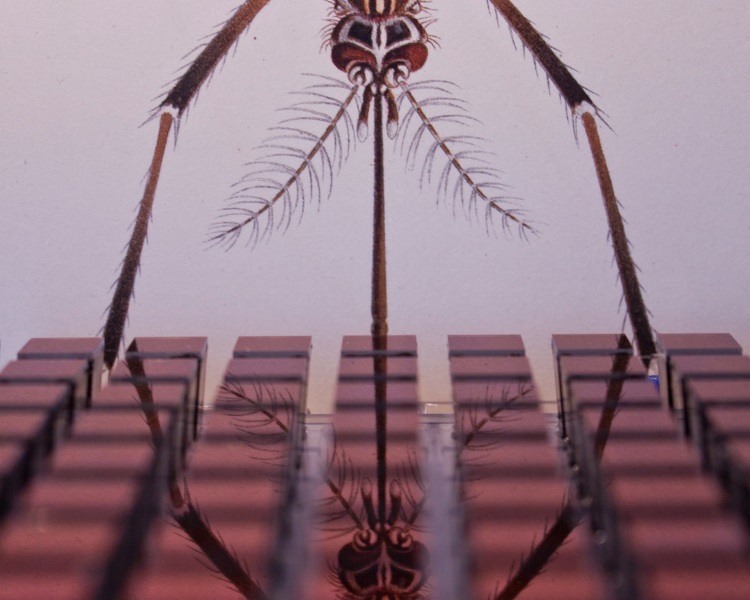
Theo Murphy international scientific meeting organised by Professor Frederic Tripet, Professor Jeffrey Powell, Professor Alessandra della Torre and Dr Aboulaye Diabate.
Traditional chemical approaches to mosquito control are fast becoming less effective and acceptable. Worryingly, the implementation of effective novel genetic mosquito control strategies requires knowledge in mosquito behaviour, ecology and genetics that is currently very fragmentary. This extraordinary meeting of leading researchers in these fields will delineate strategic integrative research avenues addressing critical bottlenecks in implementing future vector control programmes.
The schedule of talks, speaker biographies and abstracts are available below.
Attending this event
This meeting has taken place. Recorded audio of the presentations will be available on this page within 1 month after the meeting has taken place.
Enquiries: Contact the Scientific Programmes team
Organisers
Schedule
Chair
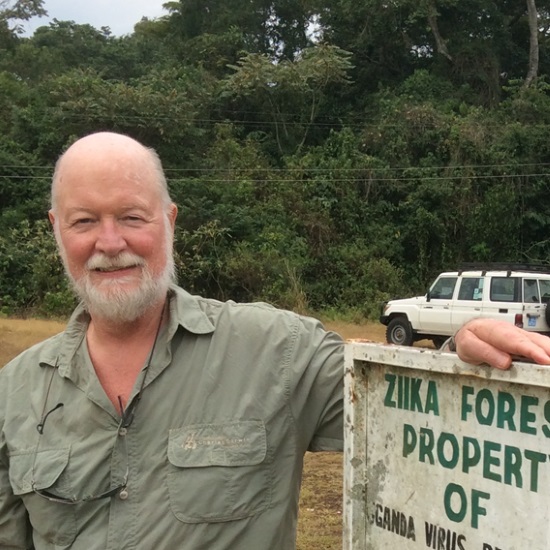
Professor Jeffrey Powell, Yale University, USA

Professor Jeffrey Powell, Yale University, USA
Professor Powell began working on Aedes aegypti as an undergraduate student at Notre Dame under George B. Craig in 1967. He obtained a PhD under the supervision of Theodoius Dobzhansky. Since 1972 he has been on the faculty of Yale Univeristy. His area of expertise is population genetics and evolutionary biology.

Professor Alessandra della Torre, Sapienza University of Rome, Italy

Professor Alessandra della Torre, Sapienza University of Rome, Italy
Professor Alessandra della Torre is Associate Professor of Parasitology at University of Rome SAPIENZA, where she graduated in Biological Sciences and got a doctorate in Microbiology and Epidemiology. She coordinates the Medical Entomology group which is focused on Afrotropical malaria vectors – with particular reference to bionomics, population genetics, genomics of the Anopheles gambiae complex, having a primary role in highlighting intra-specific genetic sub-structuring leading to the recognition of a new species of the complex, A. coluzzii – and autochthonous and invasive mosquito vectors of human and zoonotic diseases in Europe – with particular reference to bionomics of Ae. albopictus and development/optimisation of monitoring/control tools. Professor Alessandra della Torre’s research activities are carried out in partnership with several European and international groups, including groups from malaria endemic countries, in the frame of projects funded by European Community and NIH. She is also a member of the Partner Working Group of the ‘Anopheles gambiae 1.000 genome’ which is providing to the scientific community a very powerful tool for describing A. gambiae and A. coluzzii population structure and history, and for conducting genome-wide association studies of vector traits relevant for local malaria epidemiology.
| 09:05 - 09:30 |
Global genetic diversity of Aedes aegypti: implications for control
The ‘shifting’ method of genetically modifying vectors that does not require any input of novel genetic material into populations will be discussed. Updated advances will include modelling of this method to explore its feasibility and new estimates of effective population sizes of natural populations of Aedes aegypti. It will be proposed that this ‘natural’ method of genetic control is not mutually exclusive of ‘synthetic’ approaches that employ transgenic methods. Hybrid programmes could take advantages of each approach. A prime goal of any such programme should be to minimise the genetic perturbation of natural populations. 
Professor Jeffrey Powell, Yale University, USA

Professor Jeffrey Powell, Yale University, USAProfessor Powell began working on Aedes aegypti as an undergraduate student at Notre Dame under George B. Craig in 1967. He obtained a PhD under the supervision of Theodoius Dobzhansky. Since 1972 he has been on the faculty of Yale Univeristy. His area of expertise is population genetics and evolutionary biology. |
|
|---|---|---|
| 09:45 - 10:15 |
Anopheles gambiae: the glass is spilling
The increasing evidence over the last 50 years of a striking degree of genetic and bionomical heterogeneities among and within species of the Anopheles gambiae complex has definitively made clear to the scientific community that malaria vector control strategies need to account for these cryptic genetic discontinuities to ensure their efficacy. This is particularly true in the case of genetic control strategies that are being developed to reduce or replace malaria vectors. Professor della Torre will focus on the two most recently diverged members of the complex – A. gambiae and A. coluzzii – and show novel genomic and ecological data suggesting that the same process of genetic adaptation to environmental and anthropogenic changes that is believed to have driven historical diversification of the A. gambiae complex continues to act within them, likely altering epidemiologically important attributes. Professor della Torre will first show how genetic, behavioural, and ecological components interact in a complex way to modulate the strength of reproductive isolation across Africa, and then describe the genomic signatures of this dynamic process. She will then focus on the area of high hybridisation between the two species at the far-west of their range, and present novel data suggesting that extensive introgressive hybridisation occurring particularly in the coastal region is leading to a locally selected hybrid form which appears to be more resilient against introgression of medically-important loci and traits than inland populations. Overall, these data point to a very dynamic, site-specific and ongoing process of intra-specific sub-structuring within the two major Afrotropical malaria vectors, and highlight the need to monitor these ongoing process and its impact on epidemiologically important attributes, such longevity, fecundity, parasite susceptibility, host seeking behaviour. 
Professor Alessandra della Torre, Sapienza University of Rome, Italy

Professor Alessandra della Torre, Sapienza University of Rome, ItalyProfessor Alessandra della Torre is Associate Professor of Parasitology at University of Rome SAPIENZA, where she graduated in Biological Sciences and got a doctorate in Microbiology and Epidemiology. She coordinates the Medical Entomology group which is focused on Afrotropical malaria vectors – with particular reference to bionomics, population genetics, genomics of the Anopheles gambiae complex, having a primary role in highlighting intra-specific genetic sub-structuring leading to the recognition of a new species of the complex, A. coluzzii – and autochthonous and invasive mosquito vectors of human and zoonotic diseases in Europe – with particular reference to bionomics of Ae. albopictus and development/optimisation of monitoring/control tools. Professor Alessandra della Torre’s research activities are carried out in partnership with several European and international groups, including groups from malaria endemic countries, in the frame of projects funded by European Community and NIH. She is also a member of the Partner Working Group of the ‘Anopheles gambiae 1.000 genome’ which is providing to the scientific community a very powerful tool for describing A. gambiae and A. coluzzii population structure and history, and for conducting genome-wide association studies of vector traits relevant for local malaria epidemiology. |
|
| 11:00 - 11:30 |
Gene drive for malaria control and elimination
Existing malaria control interventions have been very successful in reducing the burden of disease, but still hundreds of thousands die every year, and new tools are likely to be needed to eliminate the disease. Recent progress in molecular biology offers the potential for a new platform for malaria control based on genetic manipulation of the mosquito vectors. Some of the many genetic approaches that have been proposed will be reviewed, focussing in particular on those using sequence-specific nucleases, and some of the population modelling that aims to predict the impact of alternative strategies. 
Professor Austin Burt, Imperial College London, UK

Professor Austin Burt, Imperial College London, UKAustin Burt is Professor of Evolutionary Genetics at Imperial College London. In 2003 he proposed that enzymes that recognise and cut specific sequences of DNA could be used to control pest populations, and since 2005 he has been Principle Investigator of a research consortium developing this idea to control the mosquitoes that transmit malaria, with particular attention to sub-Saharan Africa. Target Malaria is a not-for-profit consortium that currently includes over 100 individuals at 14 institutions across 3 continents (www.targetmalaria.org). |
|
| 11:45 - 12:15 |
Ecological and physiological correlates of mating in Anopheles gambiae
The evolution of insecticide and drug resistance and the complexity of vectorial system have seriously challenged standard public health approaches to control malaria and to date, alternative measures are desperately needed. New control approaches envision using engineered mosquitoes to suppress or to replace existing populations. Another approach that may be effective is based on conventional sterile male release. However, availability of these tools does not necessarily guarantee ultimate success. A major concern is that presence of reproductive barriers will reduce the spread of the genes of interest between subpopulations. A second concern is the possibility that laboratory adapted mosquitoes will not be able to compete for mates in the wild. Success will depend on understanding patterns of effective mosquito reproduction that are relevant to transgene spread. Most population models assume that all individuals have the same reproductive success, which probably is not the case. The most plausible natural circumstance is variation in the competitiveness of males to acquire a mate as well as assortative mating — the tendency of certain phenotype to mate with one another — yet these phenomena have been little studied in mosquitoes. Field and large outdoor cage studies designed to dissect the mating biology and characterise essential factors that enhance mating competitiveness in mosquitoes are needed to provide a foundation for predicting the potential utility of genetic control. Here, some of the key practical questions that are essential to translate transgenic or sterile males technological advance into improved malaria control in the field will be addressed. 
Dr Aboulaye Diabate, Institut de Recherche sur les Sciences de la Santé, Burkina Faso

Dr Aboulaye Diabate, Institut de Recherche sur les Sciences de la Santé, Burkina FasoDiabate Abdoulaye is a vector ecologist. He received a PhD degree from the University of Montpellier and spent four years as a postdoc fellow at NIH in the US. His research activities proceed along two different but complementary directions. First, it involves insecticide resistance and its management; and second, it focuses on population biology, ecological studies on phenotypic variation within and between populations of mosquitoes, and analyses of its genetic and environmental sources. He is particularly interested in mosquito male biology and related transgenic and sterile male approaches to control vector diseases. He has been an invited speaker in several prestigious universities including Harvard University. He is the recipient of the Royal Society Pfizer Award 2013, and was awarded the Grand Challenges Star in Global Health Grant and the MRC/DFID African Leader Scheme grant. Currently he is the group lead of the Vector Biology Department at IRSS, Bobo Dioulasso, Burkina Faso. |
Chair

Dr Aboulaye Diabate, Institut de Recherche sur les Sciences de la Santé, Burkina Faso

Dr Aboulaye Diabate, Institut de Recherche sur les Sciences de la Santé, Burkina Faso
Diabate Abdoulaye is a vector ecologist. He received a PhD degree from the University of Montpellier and spent four years as a postdoc fellow at NIH in the US. His research activities proceed along two different but complementary directions. First, it involves insecticide resistance and its management; and second, it focuses on population biology, ecological studies on phenotypic variation within and between populations of mosquitoes, and analyses of its genetic and environmental sources. He is particularly interested in mosquito male biology and related transgenic and sterile male approaches to control vector diseases. He has been an invited speaker in several prestigious universities including Harvard University. He is the recipient of the Royal Society Pfizer Award 2013, and was awarded the Grand Challenges Star in Global Health Grant and the MRC/DFID African Leader Scheme grant. Currently he is the group lead of the Vector Biology Department at IRSS, Bobo Dioulasso, Burkina Faso.
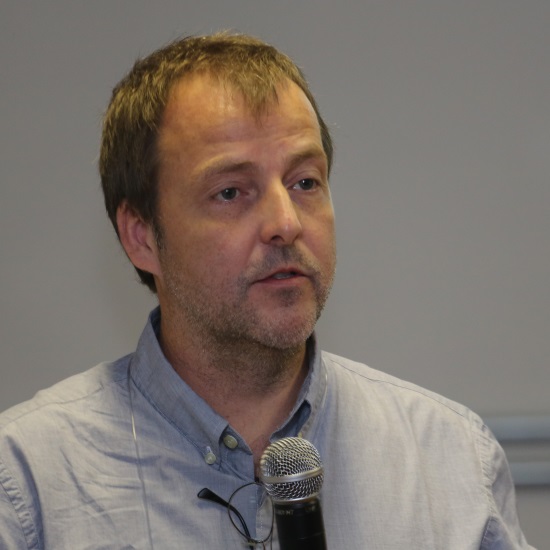
Professor Frederic Tripet, Keele University, UK

Professor Frederic Tripet, Keele University, UK
Professor Frederic Tripet is Director of the Centre for Applied Entomology and Parasitology at the University of Keele. He holds a doctorate in Behavioural Ecology and Evolutionary Biology from the University of Bern, Switzerland, complemented by postdoctoral training in Molecular Biology and Population Genetics from the University of California Los Angeles, University of Texas Medical Branch and University of California, Davis. His collaborative research partnerships with major vector endemic countries span five continents and focus on the applied integrative biology of mosquitoes that transmit human pathogens, such as Malaria, Dengue, Chikungunya and Zika, with a view on developing novel tools for their control.
Professor Frederic Tripet is a partner and field entomology technical director on the Target Malaria consortium, a not-for-profit research consortium sponsored by the National Institutes for Health and the Bill and Melinda Gates Foundation that aims to develop new approaches to sterile male mosquito releases to reduce the population of malaria-transmitting mosquitoes in sub-Saharan Africa.
| 13:30 - 14:00 |
Outcomes and mechanisms of interspecific competition between invasive Aedes vectors
Aedes aegypti and Aedes albopictus are not only the most important vectors of dengue, chikungunya, and Zika viruses but also the world’s most invasive mosquito species. Because of their widespread distributions and similar ecological requirements, the two species frequently encounter one another, leading to potential competitive interactions. Despite this, most predictive spatial distribution models do not account for the effects of such interspecific competition. Outcomes of interactions depend on both local environments and the genotypes of competitors. In the common circumstances where invasions result in their co-existence, habitat segregation favours the predominance of domesticated A. aegypti in urban areas and of A. albopictus in vegetated zones. Examples of competitive displacements of A. albopictus by A. aegypti are confined to urbanised environments. Massive competitive displacements that led to local extinctions of A. aegypti by A. albopictus have been documented in southeastern USA and Bermuda. These rapid displacements are believed to be caused by asymmetric reproductive interference, known as satyrization. Larval resource competition favouring A. albopictus may act synergistically with satyrisation, or alone to achieve slower outcomes, such as habitat segregation during co-existence. Resistance to satyrisation evolves rapidly in A. aegypti and is retained in all Florida populations of this species in sympatry with A. albopictus. Different outcomes may prevail in other co-existence contexts, e.g., where A. aegypti are represented by the feral ssp. formosus, or where male A. albopictus are inefficient satyrs. Genetic control planning should include awareness of the potentials for competitive displacements and the evolution of antagonistic phenotypes. 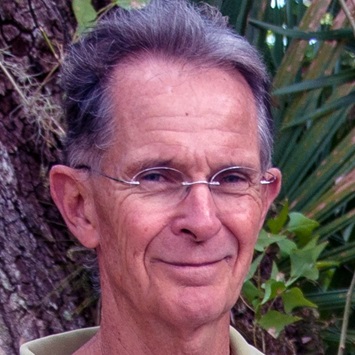
Professor L. Philip Lounibos, University of Florida, USA

Professor L. Philip Lounibos, University of Florida, USAProfessor Lounibos is a broadly trained biologist (PhD Harvard, 1974) who has conducted research for over fifty years on aspects of mosquito ecology, behaviour, and evolution. Although no longer working on genetic control, while employed in the 1970s by ICIPE in Kenya Professor Lounibos directed the first field trials of chromosome translocations for control of Aedes aegypti. Since 1977 he has been employed at the Florida Medical Entomology Laboratory, which became part of the University of Florida several years after his arrival. Professor Lounibos’ current academic appointment of Distinguished Professor is in UF’s Department of Entomology, where he also teaches and supervises graduate students. For the past twenty years, mosquito invasion biology, especially the causes of competitive displacements, have been central to Professor Lounibos’ research pursuits. |
|
|---|---|---|
| 14:15 - 14:45 |
Key factors in mosquito-borne pathogen transmission and control: what can models tell us?
Ecological factors are likely to be critical in successful application of genetic control strategies, including movement dynamics and use of the landscape, and factors affecting population dynamics such as mortality rates and competitive interactions. Models provide tools for integrating the effects of many factors, but it is not feasible to include all factors in every model. Models focusing on genetic control strategies may not include ecological details, while models focusing on pathogen transmission, other control strategies, or population dynamics likely do not include genetic control strategies. However, many types of models can be useful in the discussion about genetic strategies. Considering the factors included, available data, and effects on the outcomes of different models can provide information about important ecological aspects that may influence outcomes of genetic control strategies, and highlight areas requiring additional data for parameter estimation. Models of mosquito-borne viruses will be used to illustrate how differences between mosquito species can influence transmission dynamics and need to be considered in developing control strategies. Mosquito movement across a landscape likely influences the success of control strategies. Models of mosquito movement in simplified landscapes will illustrate how landscapes affect spatial distribution and potential efficacy of different control strategies. 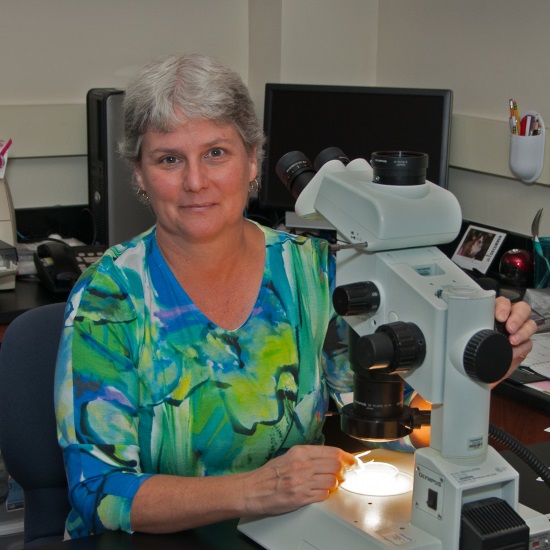
Dr Cynthia Lord, University of Florida, USA

Dr Cynthia Lord, University of Florida, USADr Lord’s research interests are in the ecology and epidemiology of vector-borne pathogens. Current projects include the role of multiple vector species in Aedes vectored arboviruses, factors influencing effective use of novel mosquito control methods, and how transstadial effects of the larval environment influence arbovirus transmission dynamics. Dr Lord is an Associate Professor at the Florida Medical Entomology Laboratory, University of Florida. She received her BS in Zoology from the University of Vermont and her PhD in Ecology and Evolutionary Biology from Princeton University. Her doctoral research was on the seasonal population dynamics of the black-legged tick, combining field research and theoretical studies. She subsequently did post-doctoral research at the University of Notre Dame on the population dynamics of an invasive mosquito, and at the University of Oxford on African Horse sickness invasion and epidemiology. |
|
| 15:30 - 16:00 |
Ignoring the gaps in understanding the ecology of Anopheles gambiae: implications for malaria control
Nearly 20 years into a successful global campaign against malaria, the disease still costs over 400,000 lives a year. As the campaign’s primary weapon was aimed against the mosquito, it is also a testimony for the resilience of this vectorial system. The genetic mosquito control promises to overcome limitations of our conventional measures of vector control by recruiting the vector reproductive drive as a weapon against itself. Trusting the mosquito to do its part might be naïve even without undesirable results. The complexity of the real world is not represented in a cage (even if named malaria-sphere), where the mosquito manifests only a fraction of its multi-faceted biology and personalities. Our knowledge of mosquitoes outside the lab is full of major unknowns, multiplying the uncertainty in predicting the spread of introduced genes within and between populations. Nobody has followed a single wild mosquito through a full night. We only guess where they take their sugar meals, mate, rest, how far they fly, how they persist though the months-long dry season? Current knowledge of the deme’s effective size, geographical dimensions, its boundaries, and the geneflow connecting different demes–are all questionable. Further, we don't know how fast they would counter our actions by mutation(s) in the introduced gene or in other genes whose function alters the outcome. Because we will never know all the answers, we could test the success of the genetic approach on a distant island or in a ‘developed country’ targeting a local vector, while at the same time, seek answers to high priority questions. Moreover, demonstrating a capacity to ‘recall’ an introduced gene and restore the previous genetic makeup would be key. 
Dr Tovi Lehmann, National Institute of Allergy and Infectious Diseases, National Institutes of Health, USA

Dr Tovi Lehmann, National Institute of Allergy and Infectious Diseases, National Institutes of Health, USA
Dr Lehmann works in the Laboratory of Malaria and Vector Research, in the National Institute of Allergy and Infectious Diseases, National Institutes of Health, USA. He has been studying the ecology of African malaria mosquitoes integrating field and laboratory experiments. With colleagues he is currently investigating the mystery of malaria mosquito persistence through the Sahelian dry season, focusing on aestivation (dry-season diapause) and long-distance migration. Their inferences are based on mark-release-recapture experiments, spatio-temporal variation in vector density, aerial sampling of mosquitoes in the lower jet stream, seasonal changes in physiology, genetic variability in natural populations, tracking scent-tagged mosquitoes in shelters using sniffing dogs, among other approaches. Their results provide evidence for aestivation in A. coluzzii and wind-assisted long-distance migration in A. gambiae s.s. and A. arabiensis, both of which have important implications for understanding disease transmission as well as for malaria control.
|
|
| 16:15 - 16:45 |
Ecological dynamics of population suppression
Gene-editing and gene-drive techniques offer the possibility of imposing a genetic load on a mosquito vector population that reduces its density to a level at which it can no longer support disease transmission or itself goes extinct. The possibility of extinction distinguishes this form of vector control from most other interventions. This talk will consider the potential ecological consequences of removing a species from a community or driving its population to very low densities, with a particular focus on the African vectors of malaria. It will consider the possibility of relaxed competition leading to super-competent vectors or population rebound, and the risks of an empty niche being filled by other potentially more powerful vectors. It will also explore the possibility that removing a species from an ecological web will cause a perturbation that affects other members of community. The talk will finish by exploring how such eventualities should be considered in risk assessment and by regulators examining proposed releases of modified mosquitoes. 
Professor Charles Godfray CBE FRS, University of Oxford, UK

Professor Charles Godfray CBE FRS, University of Oxford, UKCharles Godfray is a population biologist with broad interests in science and the interplay of science and policy. He has spent his career at the University of Oxford and Imperial College London, and is currently Hope Professor of Entomology and Director of the Oxford Martin Programme on the Future of Food at Oxford. His research involves experimental and theoretical studies in population and community ecology, epidemiology and evolutionary biology. The two main current projects in his laboratory involve experimental studies of the interactions between aphids and their food plants, natural enemies and symbionts, and the control of malaria vectoring mosquitoes using novel genetic interventions. He is particularly interested in food security and chaired the Lead Expert Group of the UK Government Office of Science’s Foresight project on the Future of Food and Farming and is currently chair of Defra’s Science Advisory Council. |
Chair

Professor Alessandra della Torre, Sapienza University of Rome, Italy

Professor Alessandra della Torre, Sapienza University of Rome, Italy
Professor Alessandra della Torre is Associate Professor of Parasitology at University of Rome SAPIENZA, where she graduated in Biological Sciences and got a doctorate in Microbiology and Epidemiology. She coordinates the Medical Entomology group which is focused on Afrotropical malaria vectors – with particular reference to bionomics, population genetics, genomics of the Anopheles gambiae complex, having a primary role in highlighting intra-specific genetic sub-structuring leading to the recognition of a new species of the complex, A. coluzzii – and autochthonous and invasive mosquito vectors of human and zoonotic diseases in Europe – with particular reference to bionomics of Ae. albopictus and development/optimisation of monitoring/control tools. Professor Alessandra della Torre’s research activities are carried out in partnership with several European and international groups, including groups from malaria endemic countries, in the frame of projects funded by European Community and NIH. She is also a member of the Partner Working Group of the ‘Anopheles gambiae 1.000 genome’ which is providing to the scientific community a very powerful tool for describing A. gambiae and A. coluzzii population structure and history, and for conducting genome-wide association studies of vector traits relevant for local malaria epidemiology.

Dr Aboulaye Diabate, Institut de Recherche sur les Sciences de la Santé, Burkina Faso

Dr Aboulaye Diabate, Institut de Recherche sur les Sciences de la Santé, Burkina Faso
Diabate Abdoulaye is a vector ecologist. He received a PhD degree from the University of Montpellier and spent four years as a postdoc fellow at NIH in the US. His research activities proceed along two different but complementary directions. First, it involves insecticide resistance and its management; and second, it focuses on population biology, ecological studies on phenotypic variation within and between populations of mosquitoes, and analyses of its genetic and environmental sources. He is particularly interested in mosquito male biology and related transgenic and sterile male approaches to control vector diseases. He has been an invited speaker in several prestigious universities including Harvard University. He is the recipient of the Royal Society Pfizer Award 2013, and was awarded the Grand Challenges Star in Global Health Grant and the MRC/DFID African Leader Scheme grant. Currently he is the group lead of the Vector Biology Department at IRSS, Bobo Dioulasso, Burkina Faso.
| 09:00 - 09:30 |
Aedes aegypti mating biology and behaviour
A solid understanding of mating behaviour and reproductive fitness is essential for successful genetic mosquito population control strategies, yet our understanding of these fundamental life history events is incomplete. Harrington will present an overview of her efforts to understand the mating system and fitness of Ae. aegypti over the past several years. She will present her work on the role of male seminal fluid proteins as modulators of female behaviour and disease transmission. Pre-copulatory interactions and their potential role as indicators of fitness, as well as assortative mating by phenotype and genotype will be presented. She will conclude with a discussion of important unanswered questions and considerations for genetic mosquito control including variation across geographic ranges, local adaptation, effect of mass rearing on fitness, and optimal approaches for measuring fitness and reproductive success. 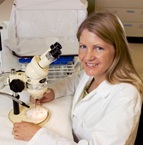
Professor Laura C. Harrington, Cornell University, USA

Professor Laura C. Harrington, Cornell University, USADr Harrington is a Professor in the Department of Entomology at Cornell University. She earned a PhD in Entomology in 1999 from the University of Massachusetts and completed Postdoctoral training at the University of California at Davis. Professor Harrington’s research focuses on the biology, ecology and behaviour of mosquitoes that transmit human diseases. Her current projects address feeding and mating behaviour of the mosquito vectors of dengue, Zika and chikungunya viruses. She also works on human-mosquito interactions and the role of climate change and globalisation on emerging vector borne diseases. She teaches a variety of courses at Cornell University in vector biology and global health. Harrington has published more than 70 peer reviewed articles and 3 book chapters. Her research has been supported by funding from the NIH, Gates foundation, USDA and CDC. More information is available on her website http://blogs.cornell.edu/harrington. |
|
|---|---|---|
| 09:45 - 10:15 |
Autocidal techniques against Aedes mosquitoes in the USA
New mosquito control methods are needed for reasons including invasive vector species, increasing resistance to existing pesticides and the global spread of mosquito-borne pathogens. Multiple vector control approaches are based on autocidal methods, which employ ‘self-delivering’ strategies of ‘mosquitoes against themselves.’ Data from laboratory and field trials will be presented from two autocidal methods that target Aedes aegypti and Ae. albopictus as globally invasive and medically important vectors. One method is based on Wolbachia, an endosymbiotic bacteria that is common in many invertebrate species. Similar to the sterile insect technique, the Wolbachia approach is based on repeated, inundative releases of Wolbachia-infected males to cause a form of conditional sterility in the targeted populations. A second method employs adult male mosquitoes to directly, and indirectly, deposit a potent inhibitor of immature mosquito development into breeding sites. Presented here, will be a summary of experimental data, public engagement efforts, and the communication and coordination between industry, federal and local regulators, experts in insect rearing, and abatement district managers. 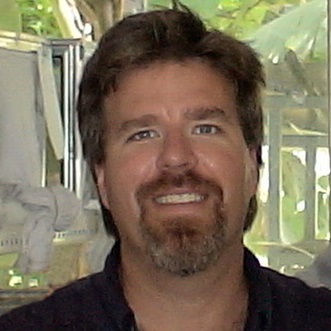
Professor Stephen Dobson, University of Kentucky, USA

Professor Stephen Dobson, University of Kentucky, USAStephen pursued his funding support from NIFA, NIH, NSF and the Bill and Melinda Gates Foundation. In 2010, Stephen founded MosquitoMate, Inc. as a spinoff company, based on UKY-patented Wolbachia technology, which has subsequently received additional funding support from NIH and the Kentucky Cabinet for Economic Development. The Wolbachia pesticide approach has received experimental permits from the US EPA, and with multiple years of field trials completed, MosquitoMate has applied for commercial registration. |
|
| 11:00 - 11:30 |
Genetic diversity and recent selection in natural populations of An. Gambiae
The Anopheles gambiae 1000 genomes project (Ag1000G) is using whole-genome sequencing of individual mosquitoes to study genetic variation and adaptation in natural malaria vector populations. This talk will describe the Ag1000G phase 2 data resource, which includes genome-wide data on nucleotide variation in 1,142 mosquitoes collected from 13 African countries. More than 57 million nucleotide polymorphisms were discovered in this cohort, and the high levels of natural genetic diversity significantly limit the genes that could be targeted by control methods based on gene drive. Strong signals of recent selection were found in multiple populations and at multiple genes involved in insecticide resistance, providing a unique opportunity to study adaptive processes in vector populations under strong selection pressure. It is becoming clear that both the large reservoir of standing genetic variation in vector populations, and the capacity for adaptive mutations to move over large geographical distances via mosquito migration, are playing important roles in the adaptive response to insecticide-based control methods. Any successful vector control intervention will apply strong selective pressures, and we discuss how whole genome sequence data might be used in future to monitor vector populations, track the spread of genetic variants causing resistance to control methods, and evaluate the success of control interventions. 
Alistair Miles, University of Oxford, UK

Alistair Miles, University of Oxford, UKAlistair Miles is Head of Epidemiological Informatics at the Centre for Genomics and Global Health at the University of Oxford. He is project lead for the Ag1000G consortium and works on genome variation and population genomics of malaria vectors. |
|
| 11:45 - 12:15 |
Gene drive strategies for suppression of populations of insect vectors of disease
Synthetic gene drive systems using site-specific endonucleases to spread traits into a population, at rates much faster than simple Mendelian genetics, were first proposed more than a decade ago. Such gene drive systems have huge potential for transforming populations of insect pests and disease vectors in ways that are beneficial for human health and over meaningful timeframes. We are engineering gene drive systems designed to cause population suppression in the mosquito Anopheles gambiae using two approaches: 1. CRISPR-based gene drive constructs that target and disrupt genes with essential roles in mosquito viability; 2. generating driving sex chromosomes that can distort the sex ratio of a mosquito population towards males, thereby reducing its reproductive potential. We have shown high rates of gene drive with constructs targeting several different key mosquito genes and see rapid rates of invasion of the gene drive constructs in caged populations. Having established proof of principle for the approach the next technical challenges we are addressing relate to making the gene drives more robust by combatting the emergence of resistance that can arise in the form of mutations or polymorphisms at the target site of the gene drive. 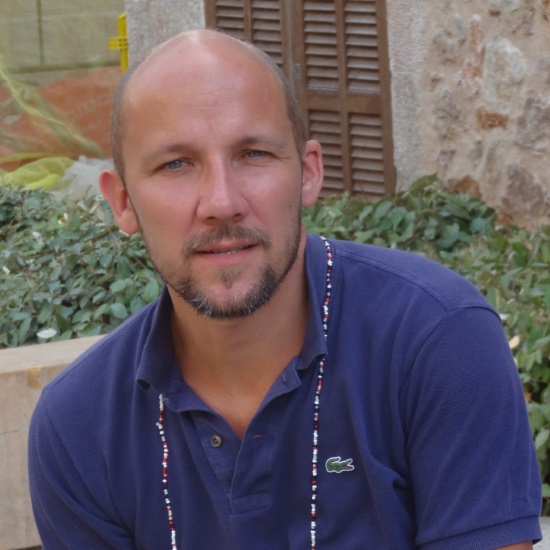
Dr Tony Nolan, Imperial College London, UK

Dr Tony Nolan, Imperial College London, UKTony Nolan was part of the team that developed the first ever genetic transformation technology for a malaria mosquito. His interests lie in the biology of reproduction and sexual development in the mosquito and in using this understanding to develop novel genetic tools for vector control that can augment existing technologies. He recently led research that culminated in the first ever demonstration of a gene drive with the potential to cause suppression of mosquito populations through the use of site-specific nucleases that can spread in a population and target essential genes in the mosquito. |
Chair

Professor Jeffrey Powell, Yale University, USA

Professor Jeffrey Powell, Yale University, USA
Professor Powell began working on Aedes aegypti as an undergraduate student at Notre Dame under George B. Craig in 1967. He obtained a PhD under the supervision of Theodoius Dobzhansky. Since 1972 he has been on the faculty of Yale Univeristy. His area of expertise is population genetics and evolutionary biology.

Professor Frederic Tripet, Keele University, UK

Professor Frederic Tripet, Keele University, UK
Professor Frederic Tripet is Director of the Centre for Applied Entomology and Parasitology at the University of Keele. He holds a doctorate in Behavioural Ecology and Evolutionary Biology from the University of Bern, Switzerland, complemented by postdoctoral training in Molecular Biology and Population Genetics from the University of California Los Angeles, University of Texas Medical Branch and University of California, Davis. His collaborative research partnerships with major vector endemic countries span five continents and focus on the applied integrative biology of mosquitoes that transmit human pathogens, such as Malaria, Dengue, Chikungunya and Zika, with a view on developing novel tools for their control.
Professor Frederic Tripet is a partner and field entomology technical director on the Target Malaria consortium, a not-for-profit research consortium sponsored by the National Institutes for Health and the Bill and Melinda Gates Foundation that aims to develop new approaches to sterile male mosquito releases to reduce the population of malaria-transmitting mosquitoes in sub-Saharan Africa.
| 13:30 - 14:00 |
Wolbachia and population transformation: best strategies for sustained control of Aedes vectored viruses.
The use of the bacterium Wolbachia has transformed the world of vector-borne disease control. Rearing and release of massive numbers of Aedes aegypti infected with strains of the bacterium Wolbachia pipientis can be used to transform (infect) wild populations, and reduce their capacity to transmit viruses such as dengue, Zika and chikungunya. To date, the wMel strain has been most successful, with the Eliminate Dengue Program carrying out release programs in several countries impacted by dengue. Two factors are key to the success of the strategy: first, a powerful drive mechanism that selectively favours infected populations; and second, the capacity for Wolbachia to significantly reduce virus replication in the salivary gland. In essence, you have a self-driving vaccine program for Ae. aegypti mosquitoes. Results from 6 years of releases in the Cairns Australia region indicate that Wolbachia infections persist, and that dengue transmission, based on local limited data, is dramatically reduced. Learnings from the releases indicate that the infection spreads slowly, 100 – 200 m/year; that large roads, greenbelts and waterways are barriers to dispersal; and that infections in small populations or geographic areas are subject to decay. Overcrowding in larval containers delays mosquito production, slowing the advancement of Wolbachia, and high temperatures can reduce Wolbachia infection in larvae. Competition from other container mosquitoes such as Aedes albopictus is a threat to persistence of infected Ae. aegypti populations. Finally, this research project is a work in progress, and careful monitoring of Wolbachia and interactions of infected mosquitoes with other elements within their environment is required. 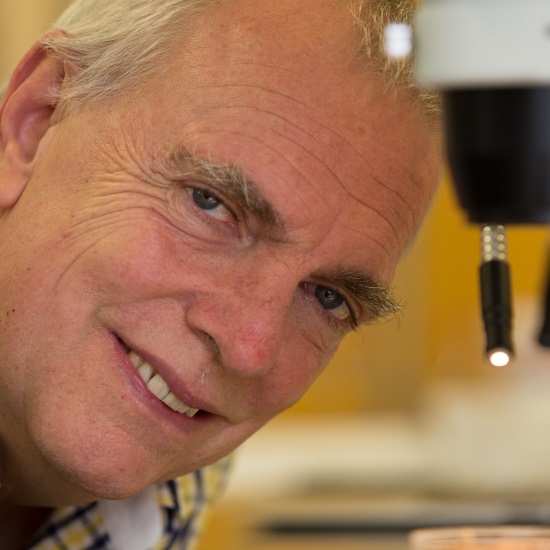
Professor Scott Ritchie, Australian Institute of Tropical Health and Medicine, James Cook University, Australia

Professor Scott Ritchie, Australian Institute of Tropical Health and Medicine, James Cook University, AustraliaProfessor Scott Ritchie leads a diverse group of health practitioners and research scientists, whose collective goal is to prevent vector-borne disease, especially dengue, in north Queensland. From 1994 – 2011 Professor Ritchie was employed as Director, Medical Entomology at the Tropical Regional Services (formerly Tropical Public Health Unit), the preventative health arm of Queensland Health in North Queensland Australia. There he helped develop the world recognised Dengue Fever Management Plan for north Queensland. Professor Ritchie is currently employed as a NHMRC Professorial Research Fellow at the James Cook University’s College of Public Health, Medical and Veterinary Sciences, and the Australian Institute of Tropical Health and Medicine. His research has centred upon control of vector-borne diseases, especially dengue. Professor Ritchie has been a principal investigator in the Eliminate Dengue programme funded by the Bill and Melinda Gates Foundation since its inception in 2005. This innovative project utilises the bacterium Wolbachia to prevent the dengue vector Aedes aegypti from transmitting dengue viruses. His group is currently evaluating open field releases of Wolbachia-infected Ae. aegypti mosquitoes in Cairns. He has also lead the Aedes albopictus control programme in the Torres strait, Australia. Professor Ritchie is also involved in new projects studying the potential impact of global warming on dengue in Australia, use of Incompatible Insect Technique and novel vapour active pesticides to control Ae. aegypti, and the development of novel passive mosquito traps for the detection of pathogens in mosquitoes. |
|
|---|---|---|
| 14:15 - 14:45 |
Genetic and ecological determinants of assortative mating amongst sibling species of the Anopheles gambiae complex
The malaria mosquito An. gambiae, with its vast geographical range and complex population structure, epitomises the challenges associated with non-random mating for mosquito release programmes. The presence of sympatric cryptic taxa in many regions, combined with a limited knowledge of the processes leading to strict assortative mating amongst them currently casts doubt on the feasibility of implementing successful release programmes. Whilst the last decade has seen substantial progress in our knowledge of male mating biology, it has now become even more imperative to further our understanding of the genetic and ecological determinants of assortative mating in wild populations. Here, these determinants will be examined in turn. First, an evaluation of current knowledge of the genetic structure of speciation in the Anopheles gambiae complex, with a focus on recent laboratory and field-based behavioural genomics studies aiming to understand the maintenance of assortative mating amongst sibling species despite residual gene flow. Next, discussion of ecological and behavioural determinants that may have affected past and current levels of gene flow between the sibling species. Finally, an examination of changes in our understanding of the fitness landscape of hybridisation between cryptic taxa, and an attempt to disentangle its natural and anthropogenic determinants. The complex interplay between genetic and environmental factors and their effect on reproductive isolation amongst taxa gives us some insight on how future malaria vector populations may evolve in response to ever increasing vector control pressures. It has also various implications for control strategies based on mosquito release programmes and their deployment. 
Professor Frederic Tripet, Keele University, UK

Professor Frederic Tripet, Keele University, UKProfessor Frederic Tripet is Director of the Centre for Applied Entomology and Parasitology at the University of Keele. He holds a doctorate in Behavioural Ecology and Evolutionary Biology from the University of Bern, Switzerland, complemented by postdoctoral training in Molecular Biology and Population Genetics from the University of California Los Angeles, University of Texas Medical Branch and University of California, Davis. His collaborative research partnerships with major vector endemic countries span five continents and focus on the applied integrative biology of mosquitoes that transmit human pathogens, such as Malaria, Dengue, Chikungunya and Zika, with a view on developing novel tools for their control. Professor Frederic Tripet is a partner and field entomology technical director on the Target Malaria consortium, a not-for-profit research consortium sponsored by the National Institutes for Health and the Bill and Melinda Gates Foundation that aims to develop new approaches to sterile male mosquito releases to reduce the population of malaria-transmitting mosquitoes in sub-Saharan Africa. |
|
| 15:30 - 16:00 |
Anopheles gambiae population genetics: adaptive introgression
Adaptive introgression can introduce novel genetic variation to a species thereby enabling rapid evolutionary response. Using data from the Anopheles gambiae 1000 genomes project, I will illustrate how the genomes of the two primary malaria vectors An. gambiae s.s. and An. coluzzii show signals of bi-directional introgression of adaptively advantageous mutations, principally insecticide resistance associated variants. Whilst extensive introgression is perhaps not unexpected between these sister species, I will illustrate that this may be a pervasive phenomenon across the An. gambiae complex using SNP genotype data from sympatric populations of An. gambiae s.s. and An. arabiensis from Uganda. 
Professor Martin Donnelly, Liverpool School of Tropical Medicine, UK

Professor Martin Donnelly, Liverpool School of Tropical Medicine, UKProfessor Donnelly is an evolutionary geneticist studying medically important phenotypes in the insect vectors of malaria, Human African Trypanosomiasis and lymphatic filariasis. A major area of interest is the evolution of insecticide resistance in the malaria mosquito Anopheles gambiae. His group uses a variety of genomic, transcriptomic and proteomic approaches to identify and validate insecticide resistance associated loci. They then work with an established network of sub-Saharan Africa partners to integrate these diagnostics into both malaria control programmes and randomised control studies designed to assess the epidemiological impacts of insecticide resistance. A key partnership is with the Wellcome Trust Sanger Institute Malaria Programme, where Professor Donnelly holds an Honorary Faculty position. Through this collaboration he leverages the power of next-generation sequencing technologies to address aspects of the biology of Anopheles gambiae that impact upon the sustainable control of malaria. |
